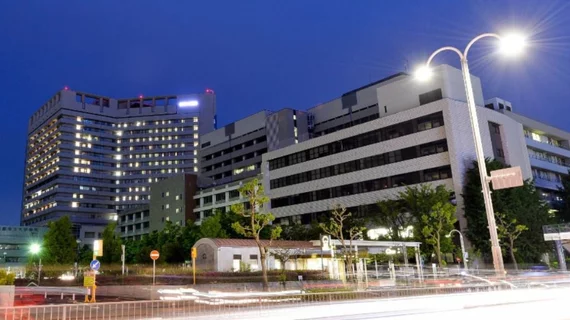Deep learning gives stable inpatients a good night’s sleep
During the overnight hours, nurses regularly awaken sleeping inpatients to check their vital signs. The familiar ritual can worsen the health status of the patients while adding undue burden to nurses’ workloads.
A new AI tool can accurately separate the patients who would do better getting restorative sleep till morning from those who, due to unstable condition, really need their vital signs checked overnight.
The developers of the system, from the Feinstein Institutes for Medical Research, Northwell Health and Hofstra University in New York, describe their work in a study published Nov. 13 in NPJ Digital Medicine.
“Previous efforts to forgo overnight vital sign measurements and improve patient sleep used providers’ subjective stability assessment or utilized an expanded, thus harder to retrieve, set of vitals and laboratory results to predict overnight clinical risk,” write senior author Theodoros Zanos, PhD, a bioelectronic medicine expert with Feinstein, and colleagues. “Here we present a model that incorporates past values of a small set of vital signs and predicts overnight stability for any given patient-night.”
For the project, the team trained and tested a recurrent deep neural network on seven years’ worth of data gathered from multiple hospitals. The data represented around 2.3 million admissions and 26 million vital sign assessments.
They designed the algorithm to work regardless of patient location, condition or demographics.
Reviewing its performance, the researchers found their model could help nurses safely avoid overnight vital-sign checks in close to half the patient nights in the study.
What’s more, the AI only missed the mark in a fraction of tries, incorrectly labeling 2 of 10,000 patient nights as stable.
Zanos et al. cite previous research associating disrupted inpatient sleep with poor outcomes, delayed discharges and lengthened recoveries.
“Our approach is straightforward to deploy, only requires regularly obtained vital signs and delivers easily actionable clinical predictions for a peaceful sleep in hospitals,” they write.
In coverage of the work by Northwell Health’s news division, Feinstein Institutes CEO Kevin Tracey, MD, credits the team’s expertise in machine learning for the advance in inpatient sleep science.
“Illness and hospitalization impair sleep cycles, and the promise for artificial intelligence in this domain holds significant promise,” Tracey says.
The journal has posted the study in full for free.

